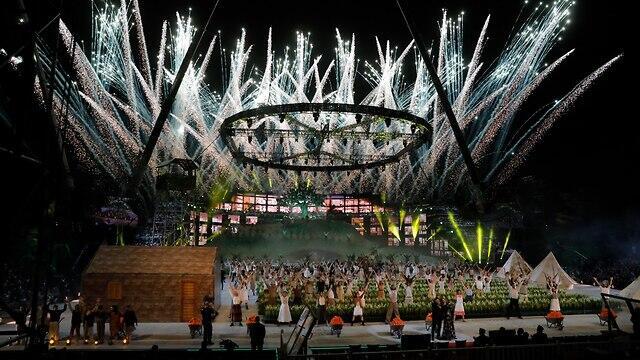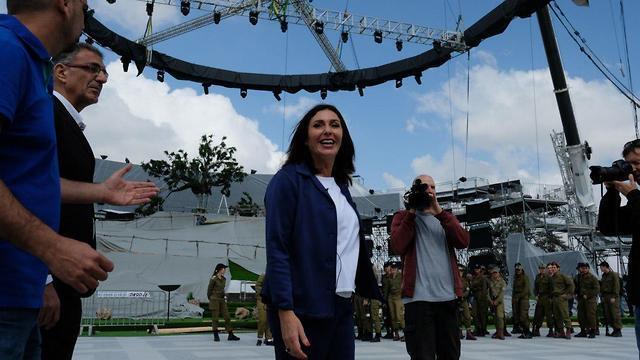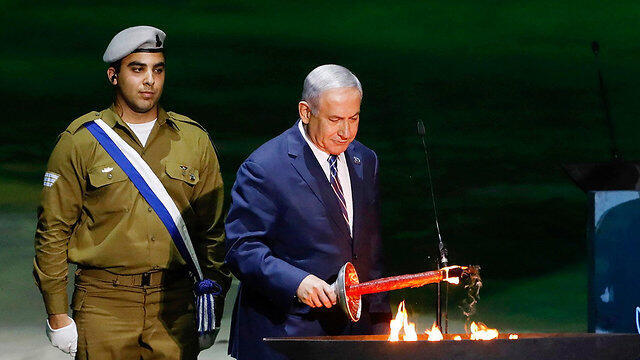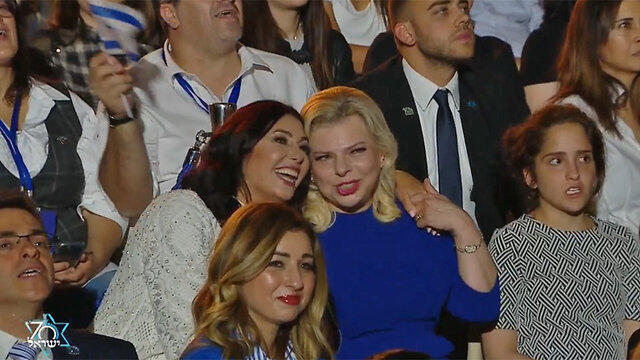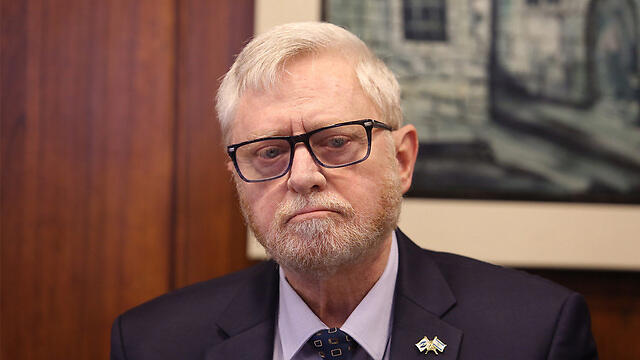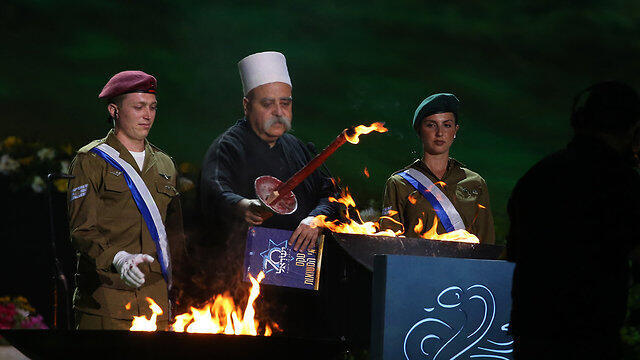A week and a half before Israel's 71st Independence Day celebrations and the traditional Torch-lighting Ceremony, State Comptroller Yosef Shapiro released a report Sunday exposing a series of irregularities with regards to how the Culture Ministry handled last year's event.
and Twitter
The report found that the process of selecting the honorees to kindle a torch was problematic. In addition, 11% of the invitations to the event were given to workers at the Culture Ministry; workers at the Prime Minister's Office and Likud activists also received hundreds of the much sought-after invitations.
The Torch-lighting Ceremony was started in 1950 and has been held every year at Jerusalem's Mt. Herzl. Every year honorees are selected to light 12 torches, corresponding to the 12 Tribes of Israel.
The ceremony marks the end of Memorial Day for Fallen Soldiers and Victims of Terrorism and the start of the Independence Day festivities. The event celebrates the accomplishments of the State of Israel and its citizens as well as the unity of the nation. Last year's event, marking Israel's 70th birthday, was especially grand.
The VIP A-list invited to the event was found to contain irregularities and members were not restricted to a set amount of the highly sought-after tickets. Some received multiple tickets based on their association with different entities or departments, without anyone verifying whether it was the same person.
Members of the Prime Minister's Office were initially allotted 467 tickets to the ceremony but another 242 were added later. The military secretary to the prime minister was allotted 26 and the prime minister's residence, 26. Four staff members received 23 tickets.
Likud operative received 80 tickets to the event while no representatives of other parties received any such allotment.
The Culture Ministry, including Minister Regev's staff and the chairman of the ministry, received no less than 709 tickets, 11% of the total tickets distributed; a further 270 were granted for the general rehearsal.
The comptroller wrote that such wholesale distribution of tickets within the ministry itself, while the general public desperately sought to obtain them, is at odds with the behavior expected of public servants, unreasonable and defies aspirations for equality and transparency. The ministry failed to treat the tickets as public property that it is merely charged with their distribution.
Expanded event
In September 2016, the ministerial committee in charge of ceremonies, headed by Culture Minister Miri Regev, decided that the event was to be held in an expanded format. The parade grounds at Mt. Herzl has a capacity for 6,680 people. The total amount of people viewing the ceremony live, including two general rehearsals, was 20,000, up from 8,800 in previous years; the production cost was NIS 22 million.
The comptroller's report found that the process in which honorees were selected to light the torches was not conducted according to the applicable guidelines and the names were not duly vetted and voted upon by the relevant committee. One candidate was added despite being rejected earlier by the committee, and others were written off despite having received full approval.
The Culture Ministry said that 16 of the 20 candidates submitted to the minister were approved and that time constraints did not allow for the committee to conduct a vote on all the names that were added at a later point.
The report states that four of the 13 candidates approved by the committee were added without involving all the committee members. The process in which some candidates were selected was also found lacking.
Among the criteria for selecting candidates is that they come from a variety of geographical locations in Israel and are of a plurality of ages, ethnic backgrounds and vocations. The list must also include a representative of each: the IDF, Israel's minorities population and the youth. The report says that the above criteria was not listed in the public notice soliciting names of candidates.
Regarding a candidate from the Diaspora, the report found that the guidelines for selecting such a candidate were vague and need to be clarified. Last year's Diaspora candidate was unable to travel to Israel and was disqualified without replacement.
Despite some 20,000 available slots to view the ceremony (including rehearsals), only about one third of them were made available to the general public. Despite adding 2,460 seats to the event itself, the general public only received an additional allotment of 370 seats compared to previous years.
The comptroller wrote that the procedure for obtaining tickets to the event, for the general public, was not properly publicized and many citizens who wished to attend had no idea how to go about it.
Furthermore, although recipients are allowed two tickets to the event, the Culture Ministry's website shows that 1,751 recipients were given 4,138 tickets.
The public was not given a real and equal opportunity to participate in the Independence Day and Memorial Day events, the report states. Most attendees were in fact political operatives and well-connected individuals benefiting from nepotism.
The report also states that documentation was not properly kept making it difficult to fully understand the decision-making process.
The response of the Culture Ministry states that they welcome the report saying some of the comptroller's recommendations were already being implemented and that steps were being taken to alleviate irregularities relating to the distribution of tickets to all official events.


